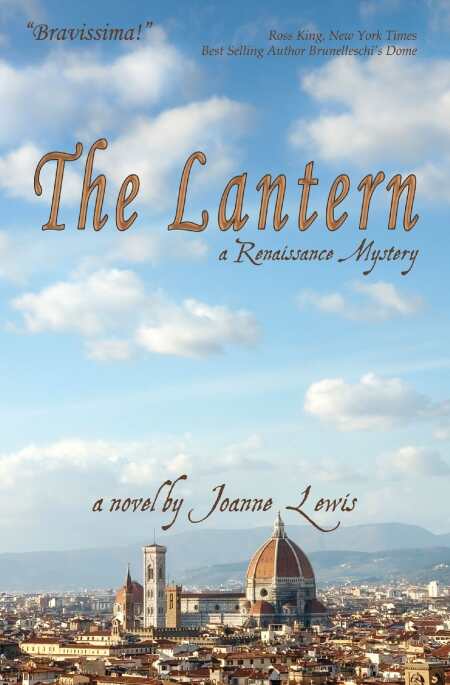The Lantern
A Renaissance Mystery
In The Lantern, an intriguing tale that effortlessly spans time and place, award-winning author Joanne Lewis presents a mystery of Italian architectural history that follows two women’s quests to break free from their past, address the struggles of the present, and find a new future. Along the way, Lewis explores how hardship can either destroy a person or clarify their purpose in life. She also considers how realigning their focus on what really matters helps people to persevere through the difficulties they face. Throughout the story, the author weaves messages of acceptance of others, despite their faults and differences. But perhaps the most powerful message of all is summarized by one character who says, “make your choices well, my son, for they will be with you the rest of your life.”
Lewis’s two protagonists are Filippa George, in present-day Miami, who must solve an ancient architectural mystery about the legend of a Renaissance girl who entered an architectural contest; and Dolce Gaddi, who was alive in 1400s Italy, the very girl Filippa is researching. The story jumps seamlessly between their stories. If Filippa uncovers evidence of Dolce’s existence, she’ll win a million-dollar prize and save a sick little boy’s life. Moreover, searching for the truth might prove to be the key to overcoming her own demons of abuse and addiction—for Dolce, readers learn, was caught in a web of abuse, too, and also must save another’s life. Both women must find in themselves whatever it takes to create new and meaningful futures.
The book’s writing is strong, with well-crafted, multifaceted protagonists, who, while clearly imperfect, strive to be something more. Filippa’s and Dolce’s struggles feel real. And the story features a compelling, page-turning plot and a clean, enjoyable writing style. The settings enthrall the imagination, as does the mystery itself.
Only a few things mar this read: The antagonists sometimes risk becoming caricatures. And a few elements of the story stretch believability, such as the fact that no one intervenes with Dolce’s abuse. Nevertheless, it should be an enjoyable read for anyone who loves history, architecture, or just good sleuthing.
Reviewed by
Diane Gardner
Disclosure: This article is not an endorsement, but a review. The publisher of this book provided free copies of the book to have their book reviewed by a professional reviewer. No fee was paid by the publisher for this review. Foreword Reviews only recommends books that we love. Foreword Magazine, Inc. is disclosing this in accordance with the Federal Trade Commission’s 16 CFR, Part 255.

